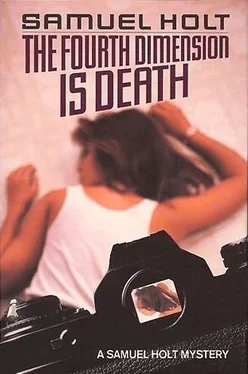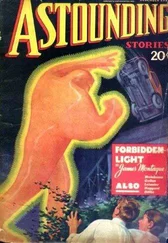“Then why’d they get married, for God’s sake?”
“There isn’t a couple I can think of,” Terry said thoughtfully, “about whom that question couldn’t be asked. They got married, that’s why. If there was trouble between them in the marriage, they kept it quiet.”
“Hmmmm,” I said, because that wasn’t what I’d wanted to hear.
“Also,” he said, “while we’re on the subject of bad news, Montgomery was depressed about his health. His first wife’s cancer death apparently got to him in a big way, brought a tendency toward hypochondria into full flower.”
“Hmmmm,” I said again. “What did his note say?”
“Well, now,” Terry said, “there we have a little something for your team. There was no note.”
“That’s unusual, Terry,” I said.
“I know that,” he agreed. “Most suicides leave a note. Particularly well-off literate intelligent suicides who want to make it clear it’s depression or health reasons and they’re not blaming their loved ones. I know that.”
“So what have we here?” I asked.
“Probably, just a member of the minority,” Terry told me. “It is not entirely unheard of for suicides to go out with no final message, it’s just less common than the other way.”
“Okay, okay,” I said. “How did Montgomery do the deed?”
“Gun,” Terry said. “His own, registered to him, a little revolver such as is found in a drawer in most master bedrooms in that county. Fired twice, the first time at a mirror in the bedroom. Second time, he shot himself in the ear.”
“The ear? Isn’t that unusual?”
“Not really,” he said. “Suicides do understand that the concept is to get the bullet in touch with the brain. Some of them put the gun in their mouth, some put it in their ear. Not many shoot themselves in the eye.”
“Goddamit, Terry,” I said, “this is sounding more and more like suicide.”
He laughed, but sympathetically. “I was thinking the same thing myself,” he said.
“There’s nothing else for my team? Just the lack of a note?”
“Sorry, pal.”
I thanked him for his efforts, and told him I’d be staying here with Anita tonight, and then we hung up, and I had even more than before to brood about.
Was I on the wrong trail entirely? Was I haring off after Rita Colby and her deceased husband, when in fact none of that had anything at all to do with Dale Wormley’s death? Had Wormley been given the part in Four Square , and had he been so sure things would be going well for him from then on, simply because Rita Colby liked him, because he’d been sympathetic at the time of her loss or something like that?
And did that mean Dale Wormley’s murderer had come out of some other quadrant of his life? Howard Moffitt and his acting class, for instance? Or the Kwality FoodMart commercials? Or some corner of his experience I hadn’t even come across yet?
How much longer could Ed Dante keep stumbling around New York with his dumb grin and his dumb moustache and his dumb hair, without getting exposed as a phony and without making trouble for Sam Holt? And what was Ed Dante accomplishing anyway? Nothing that I could see.
Well, I was discouraged, and I had good reason to be, but how could I stop? I had to keep trying because there was no alternative. Ed Dante had to keep shambling forward because he hadn’t finished his job yet; even though it was looking very much as though he never would finish it.
But Ed Dante wasn’t done yet. There was still hope, I hoped. And so, for now, Ed Dante had to get himself back in gear and get out there and fail an audition.
In recent years, the West Village has been undergoing a great deal of gentrification, the old warehouses and factory lofts and garages in the blocks near the Hudson River converting to condominiums, their ground floors filling with new delis and dry cleaners, and here and there, because this is Greenwich Village, new small theaters. The O. Henry Theater was one of these, in a building that had until just a few years ago been the home base of a moving and storage company; now gone to New Jersey, probably. Now the building, also renamed O. Henry, its old bricks freshly cleaned and pointed, its new name on the new canopy in front of its new glass-doored entrance, was nearing the end of its conversion: Occupancy February said the sign by the entrance, which also indicated, with an arrow, the direction to the sales office.
All of that was closed now, at six-thirty in the evening, after dark, and in fact at first it seemed to me that everything was shut down for the night here. But then I saw the worklight down at the far corner of the building closest to the river — visible at the end of the street, white pinpoints of light skipping nervously atop the black water — and I walked down there to find another entrance, closed with a temporary door in a sheet of plywood nailed to the frame, but with the theater sign already fixed in place above: O. Henry Theater , it said, in black letters on a white glass background, and with a black silhouette of head-and-shoulders that I suppose was meant to be William Sydney Porter himself.
I tried the temporary door, but it was locked, with a prominent padlock; nor did I see any light within. Had Kay Henry gotten his audition times confused? I was starting to turn away when a maroon Mercedes pulled to a stop at the curb and Henry himself got out, grinning at me and saying, “Ed! Right on time. Good man.” Then he frowned past me at the entrance and said, “Where’s Cardiff?”
“I have no idea,” I told him. “I just got here myself.”
Looking irritated behind his smooth exterior, Henry went over to the padlocked door, rattled the lock, and knocked briskly on the door. When nothing happened, he said, “Well, we’ll wait for them inside,” and withdrew a bunch of keys from his pocket.
Surprised, I said, “You have a key to this place?”
“The truth is,” he said, grinning in satisfaction as he looked through the keys for the right one, “I’m one of the owners of the building. Rita, and I, and a dozen other people.” Turning his broad happy grin toward me, he said, “I was the one who named the place. Did you think it was a coincidence?”
“Well, that’s pretty good,” I said, with Ed Dante’s gawkishness. “Your own theater, and named after you.”
“Not quite,” he said, though still grinning. “A different first letter. Ah, here it is.” And he bent over the padlock with the right key.
The temporary door opened to an unfinished lobby, its pseudo-marble floor covered with heavy sheets of mover’s paper, its walls Sheetrocked but not yet painted. “Go on in,” Henry told me, holding the door open with his foot as he fiddled the key back out of the padlock.
So I went past him and on inside, looking around. Light-spill from outside gave some illumination to the interior, or at least to this lobby.
From behind me, Henry said, “See the lightswitches over there? By the doorway to the auditorium.”
“I see them,” I said, moving carefully through the semi-darkness toward a row of half a dozen lightswitches without their switchplates.
“Turn on the two on the left.”
“Okay.” I did so, and brought up recessed lighting in bas relief pots on both sides of the lobby. I stood looking around at the place, the simple modern two-window box office to one side, as Henry closed the temporary door, which had another hasp lock on the inside, matching the one without. Moving smoothly, unhurriedly, Henry fixed that hasp into place and closed the padlock over it, saying, “There. Now we’ll have privacy.” Then, turning to me, his smile glinting as he took a small pistol from his pocket, he said, “We’ll want privacy for this discussion, Ed. Should I go on calling you Ed, by the way?” And the pistol pointed unwaveringly at my face.
Читать дальше












